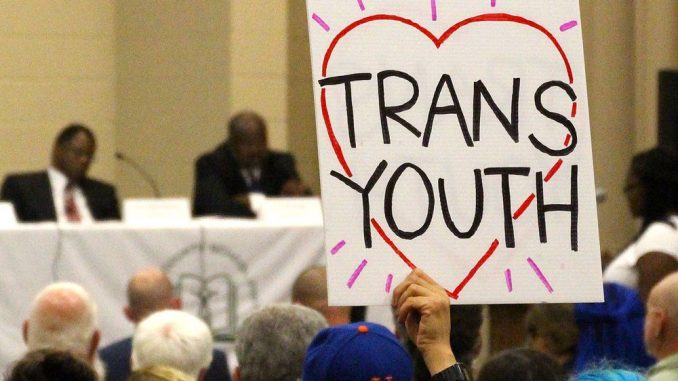
- Participants who identify as transgender and gender nonconforming (TGNC) in the 2016 Minnesota Student Survey were more likely to report a health status other than “very good” or “excellent.
- Nick Rider, one of the researchers, said the negative effects on their health were caused by their vulnerability to bullying, discrimination, and interactions that did not affirm their gender identity.
A study published in the journal Pediatrics revealed that transgender and gender non-conforming teenagers were more likely to report poorer quality of physical and mental health compared to their counterparts.
According transgender news posted on Healio website on February 5, they were also likely to have less use of preventive health care measures.
Vulnerable to higher rates of bullying
Nic Rider, PhD, who works in Program in Human Sexuality in the family of family medicine and community health at the University of Minnesota, Minneapolis, said that they were vulnerable to bullying.
“Some of our previous research indicates that, when compared to cisgender youth, [transgender and gender nonconforming (TGNC)] adolescents report experiencing higher rates of bullying and subsequently higher rates of emotional distress and substance use following from these incidents,” Rider explained.
Due to discrimination, Rider also mentioned that they suffered negative effects on their health.
“These health outcomes may also be a result of negative experiences such as discrimination and other interactions that do not affirm their gender identities and expressions, which other studies indicate does happen in health care settings,” he said.
Mental and physical health status
The researchers mined the data collected in 2016 Minnesota Student Survey and conducted an assessment on the use of healthcare, physical and mental health status among adolescents identifying as transgender and gender non-conforming in comparison with their cisgender counterparts.
A cisgender is a person whose gender identity corresponds to the gender assigned at birth.
The survey was participated by 80,929 students, 97.3 percent of whom identify as cisgender while 2.7 percent as TGNC. The demographic was exclusively students who were attending grades nine and 11.
Researchers found out that TGNC teenagers were more likely to have been born female, of color, or given free lunch or availed reduced-price lunches compared to cisgender respondents. In addition, their findings revealed there was no difference on reported gender identity based on metropolitan or nonmetropolitan locations.
About six out of ten (62.1 percent) of TGNC participants rated themselves other than “very good” or “excellent” on their health status, nearly double than that of the cisgender youth. Almost the same number (59.3 percent) of them said they suffered long-term health concerns compared to only 17.4 percent of cisgender adolescents.
They were also more likely to miss a day in school (51.5 percent) for the past month compared to the cisgender students (42.6 percent).
Furthermore, they frequently visited the school nurse and used preventive medical and dental health care despite these health concerns.
Gender expression
Researchers also divided the TGNC population into gender expression. The largest group were students who identified as equally feminine and masculine (29.3 percent among those who were born male and 41.2 percent of those who were born female).
TGNC students who were assigned male at birth frequently reported poor general health: 49.2 percent of those who identified as equally masculine or feminine and 57.5 percent of those who identified as somewhat masculine. Both numbers were higher than TGNC adolescents who identified as very masculine (32.1 percent).
Additionally, those who identified themselves other than very masculine had higher chances, ranging from 40.7 percent to 45.7 percent, to have long-term mental health concerns.
Among TGNC students who were assigned female at birth and who reported to have general health concerns, 69.5 percent were those who perceived themselves as somewhat feminine, 70.4% equally feminine and masculine, and 71.7% as somewhat masculine. More than half (54 percent) of those who identified as equally masculine and feminine reported poor health.
Moreover, just like TGNC respondents who were born male, those who were assigned female at birth had higher chances, raning from 68.1 percent to 76.7 percent, to have long-term mental health concerns.
“When health care providers do have the opportunity to work with TGNC adolescents, it is important to ask them about these health risks as well as barriers they experience in terms of accessing, utilizing and receiving competent and quality care,” Rider stated. “It is especially important for health care providers to also identify and refer to appropriate follow-up care when necessary. These are some of the ways health care providers can bolster wellness within this community.”



Be the first to comment